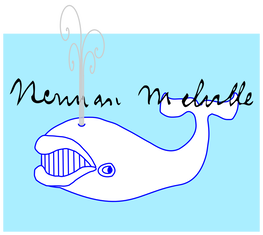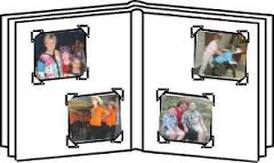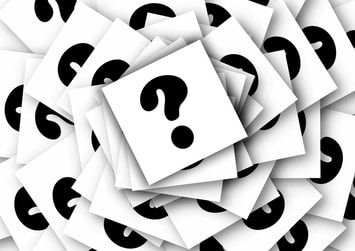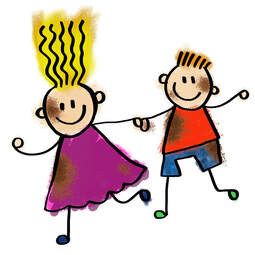 A recurring theme amongst new writers is “How do you start a story?”. For some people this is no problem. An idea pops into their head, they sit down at the place they do their writing and off they go. 80 to 100 thousand words later they have the first draft of their book completed. But for others it doesn’t work that way. For others, getting started is the difficult bit. Sometimes they have an idea in their head, but sometimes they don’t. They just want to write, but how do they get going?  Which is what this week’s blog is about. How to start your writing when you haven’t had that spark of inspiration to set you on your way. Even I need somewhere to start, so I’m going to start with “prompt phrases”. This is simply taking a few words that already exist and then continuing on from where they leave off. I’ll give you an example. “The door opened and …” continue writing from there. Where the writer goes from there is entirely up to them. It may end up as a short paragraph that leads nowhere, or it may end up on the shortlist for the Booker prize. Who knows? But great work always has a starting point and that could be it.  So, here are a few more prompts for you to think about.
It may be that by the time you stop writing, you will actually be able to remove those prompt words and you will still be left with something that stands up on its own. The great thing is that you can use the same prompts over and over again, just continuing with a slightly different set of words to create something entirely new. You can even create your own prompts or take the opening words from favourite books and use those to inspire your own work.  “Call me Ishmael” may have started Moby Dick, but it didn’t have to. There could have been a million different stories that emanated from those three words. And, providing you remove “Call me Ismael” from the starting sentence, no one will ever know you used it. If you search “writing prompts” on the internet you will come up with hundreds of articles with thousands more suggestions, some of which may be better than mine. The point about those prompts isn’t that they will lead the writer directly to a story. But they may give the writer a character, a location, a time, an incident or something else that then takes the writer to a story. It’s a bit like wanting to get to a certain street, but you don’t know where that street is. So you stop someone and ask for directions, or you go into a shop to do the same. That then gets you to the street where you want to be. The prompt phrase is the person you ask for directions. (For younger readers, people used to do that before we all had phones with maps on).  Then there is the “I remember” technique. Write the words “I remember” then follow it with three sentences. For example: I remember I went to the pub last week. Harry was there. We talked about football for a long time.” At the end of that you can remove “I remember” and you’ll be left with “I went to the pub last week. Harry was there” etc. Where you then take that is where the story will lead you. It may not lead anywhere, and you may abandon it. But there are many exciting and unexpected possibilities that can emerge from a trip to the pub.  One writer I know gets his inspiration from his favourite songs. He uses them to tap into his memories and emotions and they then give him a starting point for a story. Pick out a favourite song and listen to it. But while you are listening, ask yourself some questions and jot the answers down.
You might want to listen to the song several times to get more answers or to trigger fresh memories or additional questions. Once you have that, you can start to assemble the words into sentences. Some words you may use several times and some you may not use at all. They’re your words: do with them what you please. But when you’ve written those sentences, don’t stop. Keep writing, perhaps taking one sentence and writing a second, related sentence, much as you did with the “I remember” technique discussed above.  You can do that with other media as well. A painting, a sculpture, a book, a poem, a TV show, a film, or a play. All of them have etched themselves into your memory for a reason and those reasons can be your source of inspiration. Photographs, like music, are another good source of inspiration. We all have favourite photos, but you might want to dig out your albums and start looking at the ones you took years ago. Or, for our younger readers, access your cloud storage to find your old photos. Use the same techniques as suggested for listening to music.  Then there’s TV, radio or your news feed on the internet. The basic idea is the same for all three. Turn on your TV or radio or select your news feed on the internet (you might also use social media channels). Make a note of the first thing you see, hear or read. Don’t go searching for ones that may be more interesting. That becomes artificial and removes the spontaneity that is crucial for creativity. It doesn’t matter what it is. It could be a news story, it could be an advert, it could be someone discussing buying a house or selling an antique. Just write it down. Then, using the techniques discussed earlier, elaborate on what you have written. Try to reach around 500 words before you stop. Then imagine a character who is involved in whatever you have written and start to describe them. Some of things you might want to include are:
Combining the first 500 words with the character description should allow you to build even more. For example, the first character may have friends, an enemy, a lover, a helper and so on. How do these characters know each other? How did they meet? How is each one connected to the original 500 words?  Sheldon Cooper (actor Jim Parsons) Sheldon Cooper (actor Jim Parsons) The final suggestion I have for getting started with your writing is the “what if” question. Viewers of “The Big Bang Theory” may remember the episode in which the character of Sheldon Cooper imagines what The Hulk would be like if he was made for different materials, eg what if The Hulk was made of sponge? This is the same sort of thing. So, what if the old lady I saw on the bus yesterday is actually a serial poisoner?” So, you start writing “I saw an old lady on the bus today. She looked so sweet and innocent, but she had a deadly secret.  To change it into a third person narrative the sentence is started with “The old lady was sitting on a bus. She looked so sweet and innocent ….” So, here are some more “what if” ideas for you to play around with.
If you have particular interests or concerns (poverty, social justice, climate change, animal welfare, health, wealth etc), they could be turned into some excellent “what ifs”. There are pretty much an infinite number of “what ifs” that it’s possible to come up with. Spend some time generating a few (without answering the questions) then pick out just one to focus on and start writing. You never know where it might lead you.  Turning what you have written into a story is just a matter of technique. Short story writer E M Forster describes a story as “‘a narrative of events arranged in their time-sequence’ and a plot as "also a narrative of events, the emphasis falling on causality." To put that into context “The puppy whined piteously.” is a story. “The puppy whined piteously because it was hungry” is a plot. Turning that simple line about the puppy into a longer plot is matter of asking some questions and then answering them, but again focusing on causality.
Try to think of as many questions as you can. You may not answer them all, but the more you have the greater the possible plot permutations can have. None of the ideas discussed here are a universal panacea. Whatever you start out with may not lead anywhere. But it doesn’t have to lead anywhere every time. All it needs to do is get you writing.  Imagination is critical Imagination is critical Hold onto whatever you have created (I still have a box file from the days when I still used pen and paper) and go back and revisit these jottings from time to time. Perhaps they’ll provide fresh inspiration. But, importantly, just because one prompt didn’t lead anywhere, it doesn’t mean that the next one won’t. Ultimately writing is about imagination and these prompts are designed to stimulate your imagination. The rest is down to perseverance. And if you have neither an imagination nor perseverance, you aren’t a writer. You may be thinking “That’s all fine, but this is all about the here and now. I write fantasy/sci-fi/horror/westerns etc and those prompts don’t help me. Wrong. There is nothing that those prompts produce that can’t be transposed into any genre. Those genres are just a set of tropes that tell the reader what sort of book they are reading. The rest of it can exist in any time period or location – real or imagined. To think otherwise is to reveal a lack of imagination.  To use the example of the puppy, discussed above, it could live in Middle Earth, on the planet Gargelfarch or in a Native American tipi in 1879. It doesn’t even have to be the young produced by a dog. It could be a baby that has turned into a werewolf puppy and it’s howling because it can’t get out of its cradle to find a leg on which to chew. (Editor’s note: That idea is now copyright, Selfishgenie Publishing 2021). All writing should be fun and fun comes from playing. Anyone who has ever studied the processes involved in creativity and innovation will know that “play” is a big part of it. What this blog is about, really, is playing with words. It serves two purposes. The first is you learn by doing it. The second is that the ideas generated through this sort of play can be turned into something useable. It won’t happen every time, but it will happen. If you have enjoyed this blog or found it informative you may like to sign-up to our newsletter. Just click the button below.
0 Comments
Leave a Reply. |
AuthorThis blog is compiled and curated by the Selfishgenie publishing team. Archives
June 2025
|
 RSS Feed
RSS Feed